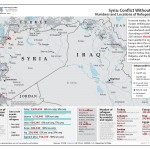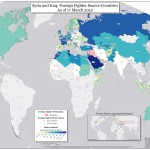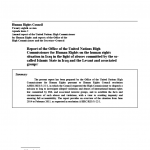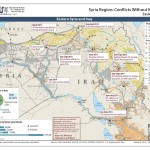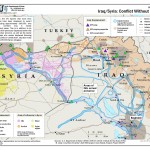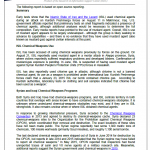
Early tests show that the Islamic State of Iraq and the Levant (ISIL) used chemical agents during an attack on Kurdish Peshmerga forces on August 11 in Makhmour, Iraq. U.S. government officials reported that preliminary tests on shell fragments indicated a presence of chemical agents, although additional analyses would be necessary to determine the full composition. Early media reports have pointed to the use of mustard agent. Overall, ISIL’s use of mustard agent appears to be largely undeveloped – although the group is likely seeking to advance its capabilities – and there is no evidence that they have used mustard agent (also known as mustard gas) against civilian interests at this point.

